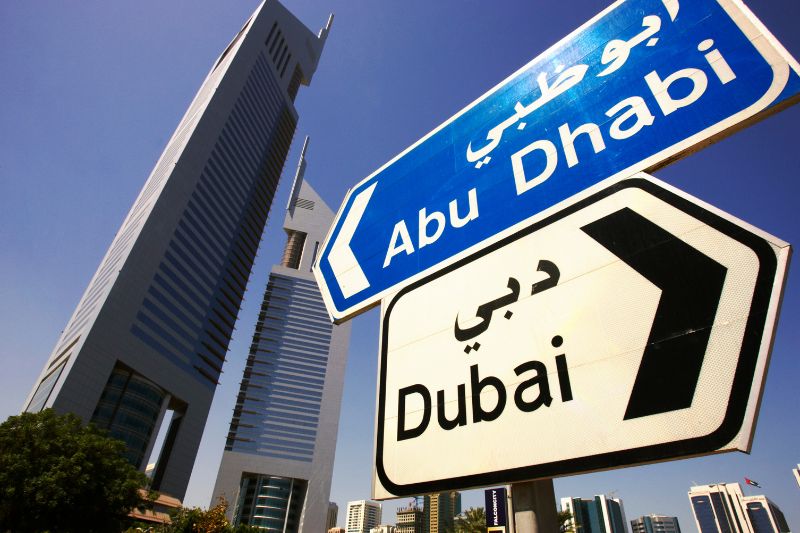GECO - Sustainability virtual italian fair
-
Virtual fair
- About us
- Expo event
- Press & Media
- Thematic areas
- How to participate
- Exhibitors
-
Sponsors
- Sponsorship
- Visibility
- Community
- Blog
- Login
-

The UAE has approved 22 proposals to promote a circular economy and strengthen the local manufacturing sector. The goal is to hasten the transition from a linear production and consumption system, known as "take-make-dispose," to one that encourages businesses to reuse, repair, and recycle products. This model is aimed at four major industries: manufacturing, food, infrastructure, and transportation.
The UAE Council for Trade, Industry and Investment (Cotii) has stated that the country's circular economy will be developed by 2020. Several government and private-sector officials, including Minister of Climate Change and the Environment Mohammed Almheiri, upheld this. The topic is becoming more important in the rest of the world, and in Italy, the circular economy is the focus of realities that are specifically geared toward achieving this goal. It is, for example, one of the five thematic areas of GECO, the world's largest virtual sustainability fair.
The council will look into a variety of opportunities, including artificial intelligence-enabled waste management solutions and the possibility of upcycling textile waste into new products.
Furthermore, the council intends to promote sustainable living practices in UAE cities and villages, as well as to expand collaboration with international organizations on circular economy strategies and initiatives.
The announcement was made at a press conference hosted by the Abu Dhabi Chamber of Commerce and Industry (ADCCI), which also discussed other initiatives such as sustainable tourism and food safety.
"The circular economy is a solution that will help us build our future," Dr Thani bin Ahmed Al Zeyoudi, minister of environment and water affairs, said. "This is why we launched this initiative, to assist us in meeting our goals."
"We want to ensure a healthy future for our children," he added. "We desire improved educational and health-care systems."
"In the modern concept of sustainability, our current linear economy consumes valuable materials and resources without being able to benefit from them after use, which represents waste." "Our approach seeks to protect our environment while also ensuring our country's long-term economic and social prosperity," Almheiri told local news agency WAM.
"We are working with partners to develop a new circular economy model that will ensure that resources are reused without harming the environment," he added.
The circular economy concept aims to reduce waste by designing products that can be reused or recycled after use, much like how a bicycle can be reused after being sold secondhand.
The UAE has also announced plans to build zero-carbon cities by 2030 as part of its Green Economy Initiative (GEI), which aims to turn Dubai into a global hub for green technologies and services.
Minister Almeheiri stated that the production of cars, clothes, food, and other everyday products accounts for 45 percent of global greenhouse gas (GHG) emissions. This demonstrates the enormous potential of the circular economy, which can supplement emission reductions and help to mitigate the current climate crisis.

This is not an easy task, but it is doable with joint efforts from the public and private sectors. The government has taken a number of initiatives to develop this strategy, such as establishing an integrated waste management system by building new facilities across the country. These include the Dubai Clean Sky Centre, which was established last year to develop technologies for the sustainable aviation industry with partners such as Boeing, Airbus, and Virgin Atlantic Airways, among others.
Minister Al Zeyoudi also stressed that meeting this ambitious goal will require strong collaboration between governments and the private sector through a variety of initiatives, such as laying the groundwork for investment in clean energy sources or creating incentives for research centres working on developing advanced technologies for recycling waste materials into new products.
Finally, the UAE has large projects in the field of circular economy, with the goal of reducing waste and reusing it in industry. This appears to be a new global movement with the potential to boost economic growth and long-term development. A movement that is committed to long-term sustainability.
However, success is not guaranteed because, first and foremost, it is an environmental project with complicated implementation procedures, and second, it requires a high level of expertise and education. To achieve its goals, the government should create an appropriate environment for its implementation by removing obstacles that impede its implementation, including financial assistance to businesses.
Are you interested in circular economy models and the technological innovations that can make it possible? Attend the next edition of GECO Expo!
Published on 24-08-2022